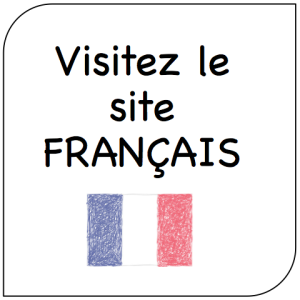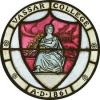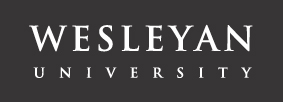Our academic program is designed to achieve three objectives. First, because we want students from all disciplines, whether they are majors in biology, history, literature, or any other field, to be able to spend a year or a semester in Paris, we provide students with access to a broad academic program offering courses in a variety of fields. Students should discuss their projected program with their advisor before they leave the United States, but they probably can take at least one course in Paris that will count towards their major(s).
Second, because we think students can learn a great deal about French people and the French educational system from taking courses at a French university, we encourage students to take two university courses, and have agreements with a number of Parisian institutions to enable our students to do so. These courses are valuable not only for their academic content, but also for the opportunity they afford students to participate in a different educational system.
Third, because American students often prefer seminar-size classes to some of the larger classes they might find in the French university system, and because French universities do not offer some of the kinds of courses on French civilization and culture that American students want to take while in Paris, we organize seminars each semester on French politics, history, art history, film, literature, and theater. Taught by outstanding French professors, these seminars are conducted entirely in French and provide students with the kind of close student-teacher contact associated with a Vassar or Wesleyan education. Many of these seminars include on-site lectures at museums and monuments, and visits to governmental institutions, concerts, films, opera, and theater performances.
Students plan their academic program in consultation with the resident director, who is a member of the Vassar or Wesleyan faculty and serves as the academic advisor for all students during their time in Paris.
The academic program has three components—writing-intensive courses, seminars organized at Reid Hall, and French university courses. All students enroll in four courses. They must take a writing-intensive course and the weekly indidivual tutorail associated with it. They are also encouraged to take two French university courses. The fourth course may be chosen from smpng those offered at a French university or the VWPP seminars.
Up until 1968, there was a single Parisian university, commonly known as the Sorbonne. In response to student demands, the Université de Paris was split into a number of separate universities in 1968, each with its own name and its own set of programs. Moreover, a university’s UFR (Unités de formation et de recherche, roughly equivalent to academic departments in the US) may be spread throughout the city; Sorbonne Université, for example, has UFR in the 5th, the 6th, the 17th and the 18th arrondissements. In order to provide students with a comprehensive set of course choices, the VWPP has agreements with Sorbonne Nouvelle, Sorbonne Université, Paris Cité, and the Universté-Paris-Est-Créteil.
Courses taken at Universities and other institutions in the last few years:
Cinéma :
- Esthétique du cinéma et de l’audiovisuel : le décor et le costume au cinéma
- La mise en scène du son
- Figurer les émotions : représentations du pathos au cinéma
- Écritures cinématographiques – cinéma, peinture, musique
- Cinémas de non-fiction (Panorama du cinéma expérimental)
Géographie :
- Géographie urbaine et rurale
- La métropolisation, entre local et global
- Instruments de l’aménagement (dessin/infographie)
Histoire :
- Le communisme dans les états et les sociétés en Europe au 20ème siècle
- Histoire de l’Europe centrale et orientale
- Colonisation décolonisation 19ème-20ème siècle
- Histoire des Amériques noires
- Les sociétés de l’Afrique subsahariennes au 19ème-21ème siècle : approches par les sources (documentaires, orales…)
- Politiques, cultures et sociétés en e
- Europe, 19ème-20ème siècle
Philosophie :
- Philosophie générale
- Temporalité
Histoire de l’Art et Archéologie :
- Art grec – l’Art grec vu par…
- Spécifique d’art médiéval : Byzance – La ville Théssalonique et ses environs au VIème et au XVème siècle
- Études visuelles : Éléments pour une histoire de la couleur et de ses rapports aux échelles de valeur
- Arts du XIXe siècle, du réalisme à l’Art nouveau
- La peinture en Europe, 1650-1650
- Spécifique d’art moderne
- Introduction au patrimoine
- Arts de l’Islam
Linguistique :
- Principes phonétiques et phonologie
- Diachronie : Langues romanes/histoire des langues romanes
Langues étrangères :
- Japonais
- Latin
- Italien
- Espagnol
Français Langue Étrangère :
- Atelier phonétique et oral
Littérature :
- Transmissions littéraire – 19ème siècle, l’héroïsme en question
- Littérature et musique
- D’un esprit à l’autre : le discours non fictionnel au siècle des Lumières
- Transmissions littéraires : le Moyen-Âge
- La voix du peuple
- Ecrire et penser la fiction
- Ecrire l’image : littérature et photographie
- Littérature et photographie
- Littérature et cinéma
- Lire le roman maghrébin contemporain
- L’héroïne travestie : ressort dramatique et motif romanesque
Arts et médias :
- Théorie des arts
- L’opéra à l’épreuve de la scène
Psychologie :
- Psychopathologie
- Psychanalyse
- Psychologie clinique de l’adolescent
- Neuropsychologie
- Troubles psychotiques de l’adulte
Droit :
- Grands systèmes politiques
- Institutions et logiques du système politique de l’UE
- Politique internationale
- Construction culturelle des identités nationales
- Economie et Finance Internationales
Sociologie :
- Rapports sociaux de sexe
- Initiation à l’histoire du genre
- Sociologie de la santé
- Sociologie des migrations et de la diversité ethno-culturelle
Sciences du langage :
- La langue comme fait social
Sciences de la nature et de la vie :
- Introduction à la médecine expérimentale
- Physiologie animale et humaine : de la cellule à l’environnement
- Grandes fonctions végétales
- Infectiologie : Microbiologie, Virologie, Immunologie
- Biologie des champignons (mycologie)
Sciences économiques et sociales :
- Economie du travail
- Politiques économiques
- Entreprises, secteurs, marchés
Informatique :
- Programmation web
- Informatique et industrie de la langue
Mathématiques
- Mathématiques pour sciences sociales
For a more detailed list of university courses students have taken recently, please visit our French website by clicking on this link.
VWPP Seminars at Reid Hall
Like most French university courses, the seminars and writing-intensive courses organized by the program meet once a week for two hours. Since it is program policy to limit class size, students may not be able to take all the seminars in which they would like to enroll. We will, however, make every effort to arrange a challenging and rewarding program for each participant.
The following seminars were offered in the previous semesters:
Spring 2023
Photography and Painting Workshop
Paris in French Cinema
Palaces and castles from the Middle-Age to the French Revolution
Paris Communities: Neighborhoods and Migrations in Paris (XIXth-XXIst centuries)
Creative writing
Industrial modernity in art and architecture (XIXth-XXth centuries)
Writing Nature, Inhabiting the World
Fall 2022
Drawing and Painting Workshop
Paris in French Cinema
France and the Occupation (1940-1944): The Present in the Past
Women, Gender, and Sexuality in Today’s France
Artistic Positions of Postmodernism
The Invention of Exoticism in France: from India to Africa (17th-18th Centuries)
Reading and Writing Paris
Writing, Rewriting, and Deconstructing Myths
Spring 2022
Creative Writing Workshop
History and Photography in France (19th-21st centuries)
Art and Politics: The Activist Artist
Women, Gender, and Sexuality in Today’s France
In the Name of Ecology: A Walking Documentation of the Transformation of Parisian Urbanism
Paris in French Cinema
Poetic Wanderings in Paris
The Devil in French Literature and the Arts
Fall 2021
Paris in French Cinema
Art installations : location and space in contemporary art
Paris Communities: Neighborhoods and Migrations in Paris (XIXth-XXIst centuries)
Writing Nature, Living in the World
French Love : A Strange Exception?
Spring 2020
Paris as Mosaic: From communities to communitarianism (19th-21st centuries)
Scandal in Art: Provocations, controversies et censorship
Writing Nature, Inhabiting the World
The Devil in French Literature and the Arts
Fall 2019
Reading, Voicing and Performing Theatre: A Course in Three Acts
Art and Politics: The Activist Artist
Refugees and the Exiled in France in the 20th century
Art and Politics: The Activist Artist
Paris in Songs
Women, Gender and Sexuality(ies) in France
Myths in Literature
Paris in French Cinema
French Love : A Strange Exception?
Absolute Monarchy and the Birth of Modernity
Spring 2019
Art installations : location and space in contemporary art
The Memory of Terror and Terrorism in Paris and in Literary Texts
From the île de la Cité to the « Grand Paris, » redefining the city
Paris in French Cinema
The Devil in French Literature and the Arts
The French West Indies: A Global Laboratory
Fall 2018
Myths in Literature
Paris in French Cinema
French Love: a Strange Exception?
The French West Indies: A Global Laboratory
Theater: Shining Light on the World
Art and Politics: The Activist Artist
« Arabs », Islam and Politics in France (1962-2018)
A Post-Colonial France? A Journey from the Past
Spring 2018
The Devil in French Literature and the Arts
France Rebels
Contextual Art
Literature and Photography
Women, Gender, Sexuality, and Colonialism/Post Colonialism
Fall 2017
The Memory of Wars in Paris and in Literary Texts
Scandal in Art: Provocations, Controversies, and the Visual Arts
The World in Performance on the Parisian Theater Stage
The Spectacle of Paris in French Cinema
The Devil in French Literature and the Arts
Spring 2017
Women, gender, sexuality, and colonialism/post-colonianism in Algeria and metropolitan France (1830-2016)
Art and Politics : The Activist Artist
The World in Performance on the Parisian Theater Stage
Parisian Transports : Mobilities, Migrations and Emotions
Paris in Revolutions
For courses being offered in the current semester, please consult « Cours à Reid Hall » (page in French)




